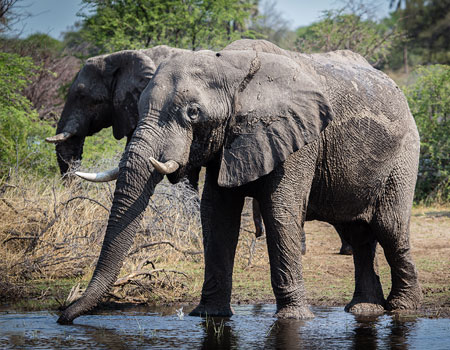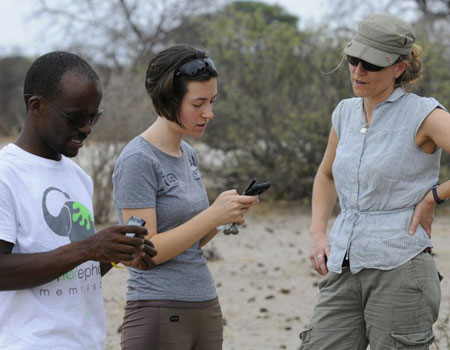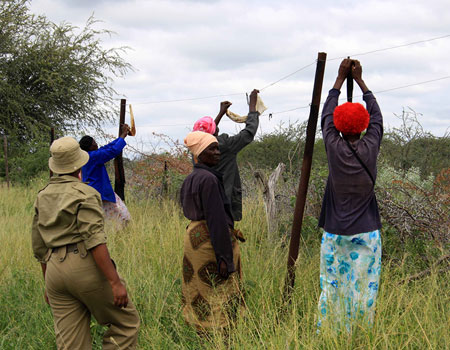OUR AIMS
Conducting research on African elephants is vital to their conservation, since it helps us to understand their behaviour, resource requirements and responses to changing environmental conditions.
Research
Conducting research on African elephants is vital to their conservation, since it helps us to understand their behaviour, resource requirements and responses to changing environmental conditions.
Our research focuses on male elephants, which have been relatively little studied to date, but can present more challenges to conservation than breeding herds. Males cover great distances, often breaking through fences and walking close to human settlements, where they can be responsible for crop raiding, damage to property and, occasionally, fatal interactions with humans. While breeding herds can also cause these issues, some areas are home to predominantly male populations, like the Makgadikgadi Pans National Park.
Thus our research interests have two main foci:
Behavioural Ecology
The interactions between males are very different to those between elephants in a breeding population. Studying male elephant behaviour in natural settings, inside protected areas, helps us to determine the motivations behind behaviour leading to human-wildlife conflict outside protected areas. It also enables us to understanding male elephant social and ecological requirements for their long-term conservation and management.
Human-Wildlife Conflict
Our research is not limited to the National Park, and we are also conducting research in the unprotected community areas that border the National Park. Here, the need to focus on human-elephant conflict mitigation is paramount.
Conducting research on African elephants is vital to their conservation, since it helps us to understand their behaviour, resource requirements and responses to changing environmental conditions.
Our research focuses on male elephants, which have been relatively little studied to date, but can present more challenges to conservation than breeding herds. Males cover great distances, often breaking through fences and walking close to human settlements, where they can be responsible for crop raiding, damage to property and, occasionally, fatal interactions with humans. While breeding herds can also cause these issues, some areas are home to predominantly male populations, like the Makgadikgadi Pans National Park.
Thus our research interests have two main foci:
Behavioural Ecology
The interactions between males are very different to those between elephants in a breeding population. Studying male elephant behaviour in natural settings, inside protected areas, helps us to determine the motivations behind behaviour leading to human-wildlife conflict outside protected areas. It also enables us to understanding male elephant social and ecological requirements for their long-term conservation and management.
Human-Wildlife Conflict
Our research is not limited to the National Park, and we are also conducting research in the unprotected community areas that border the National Park. Here, the need to focus on human-elephant conflict mitigation is paramount.




